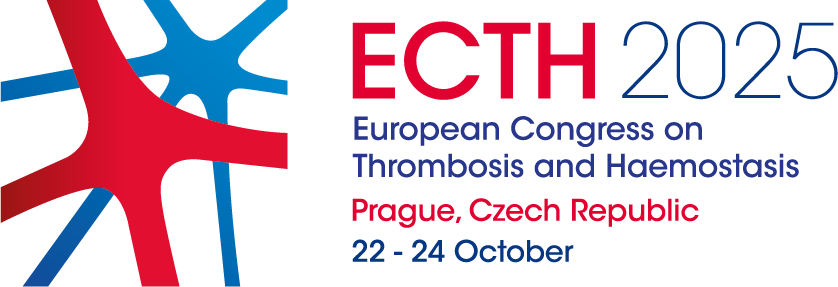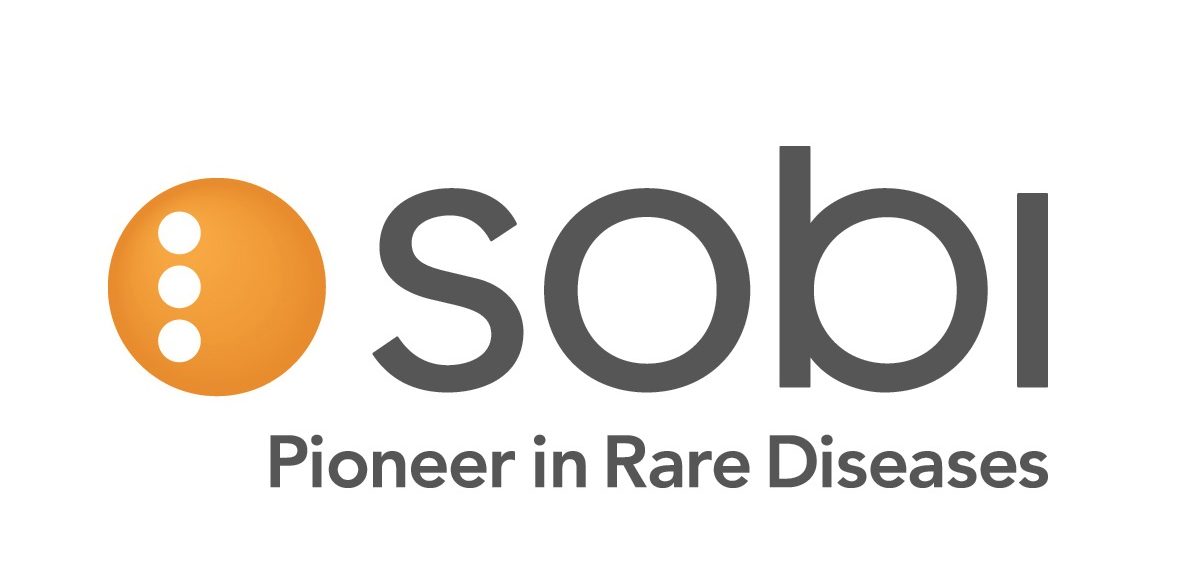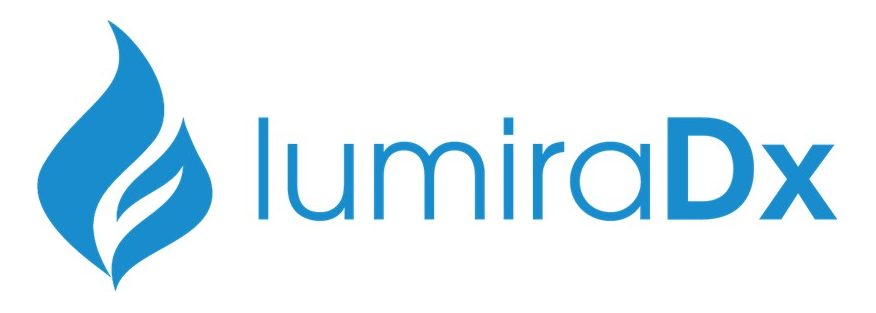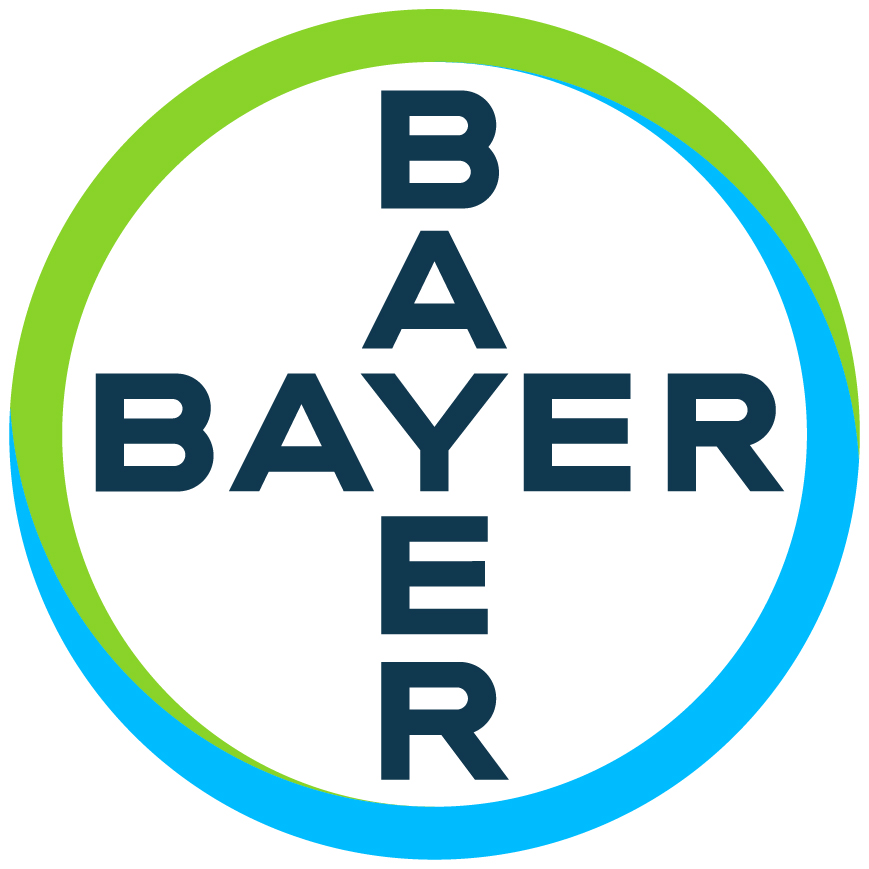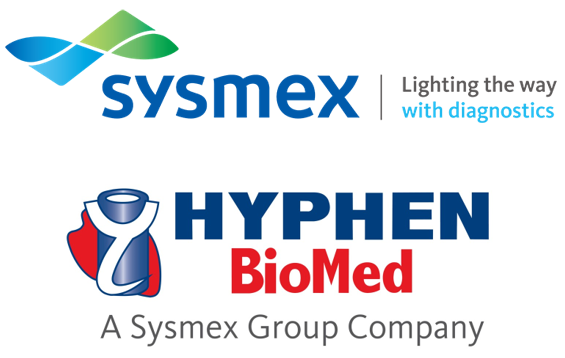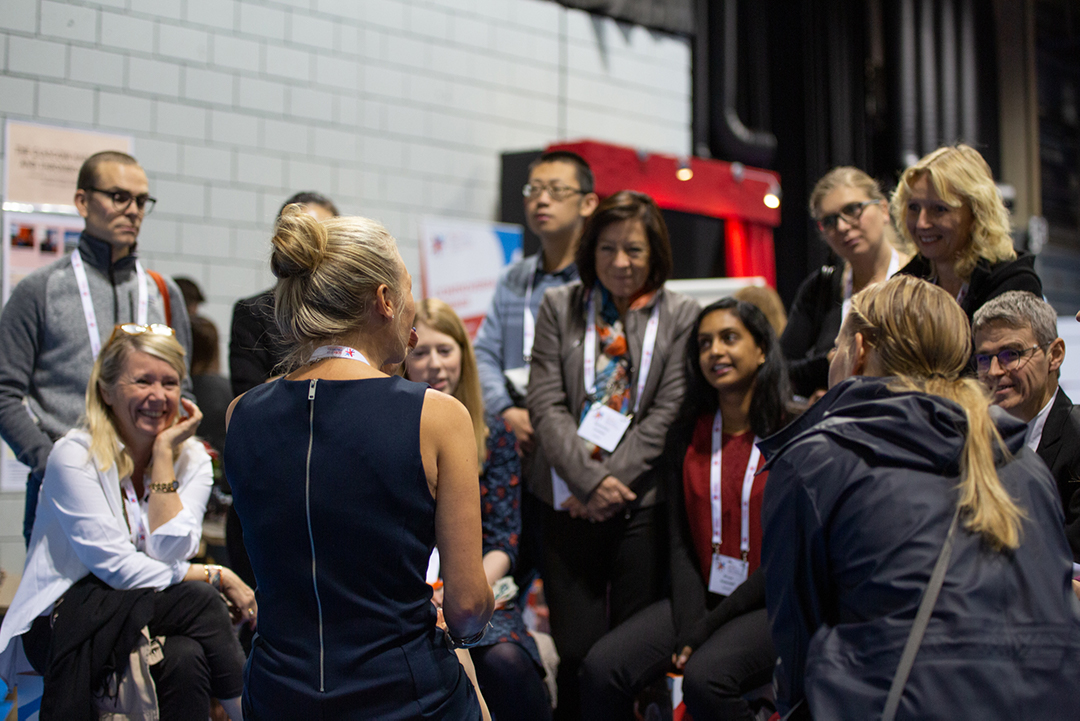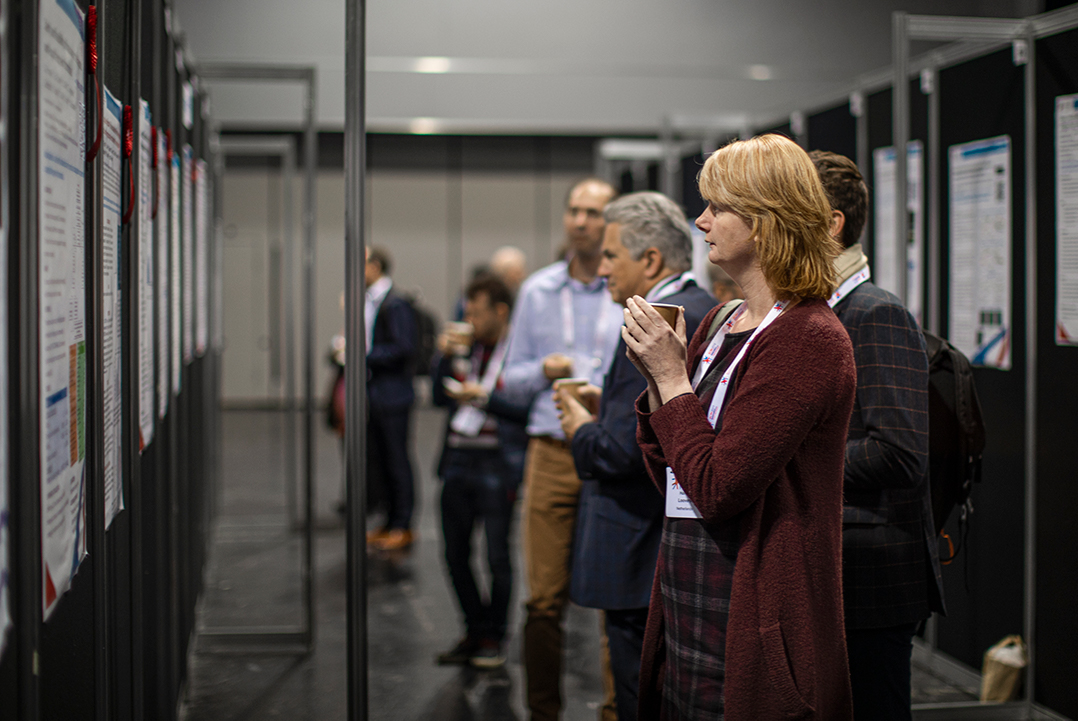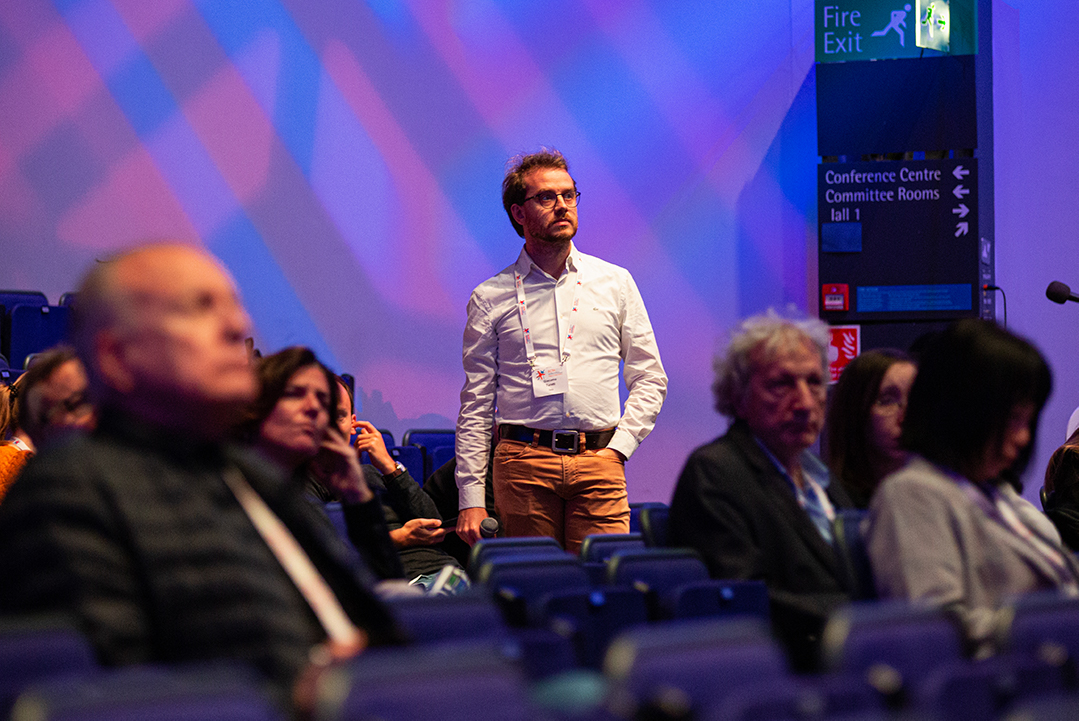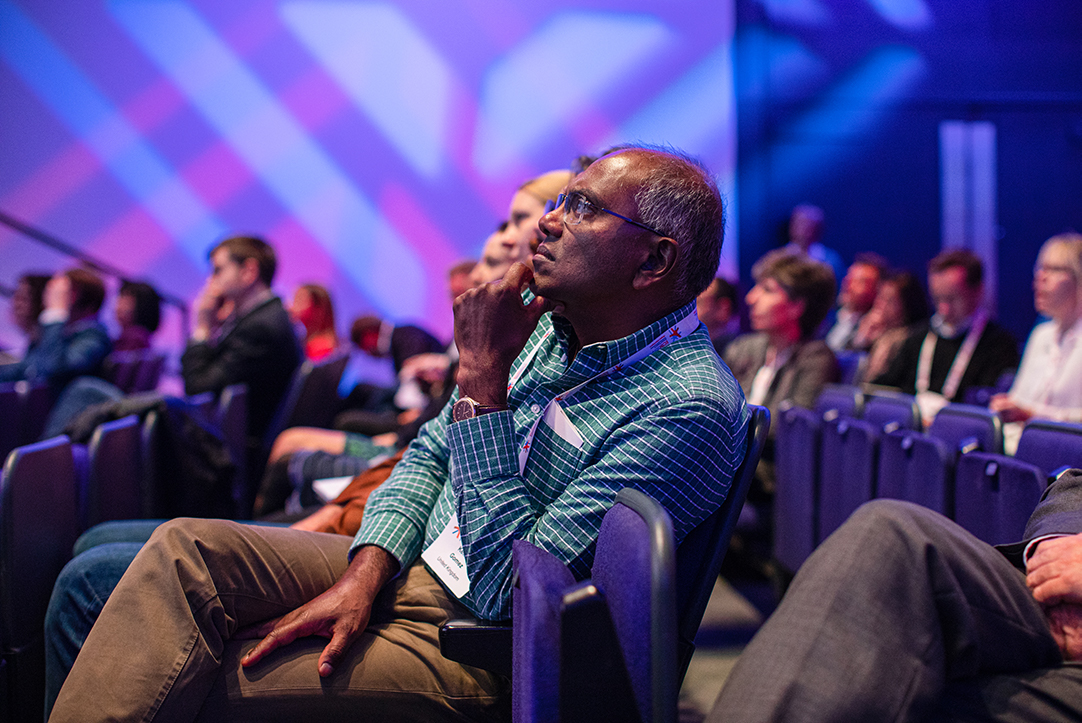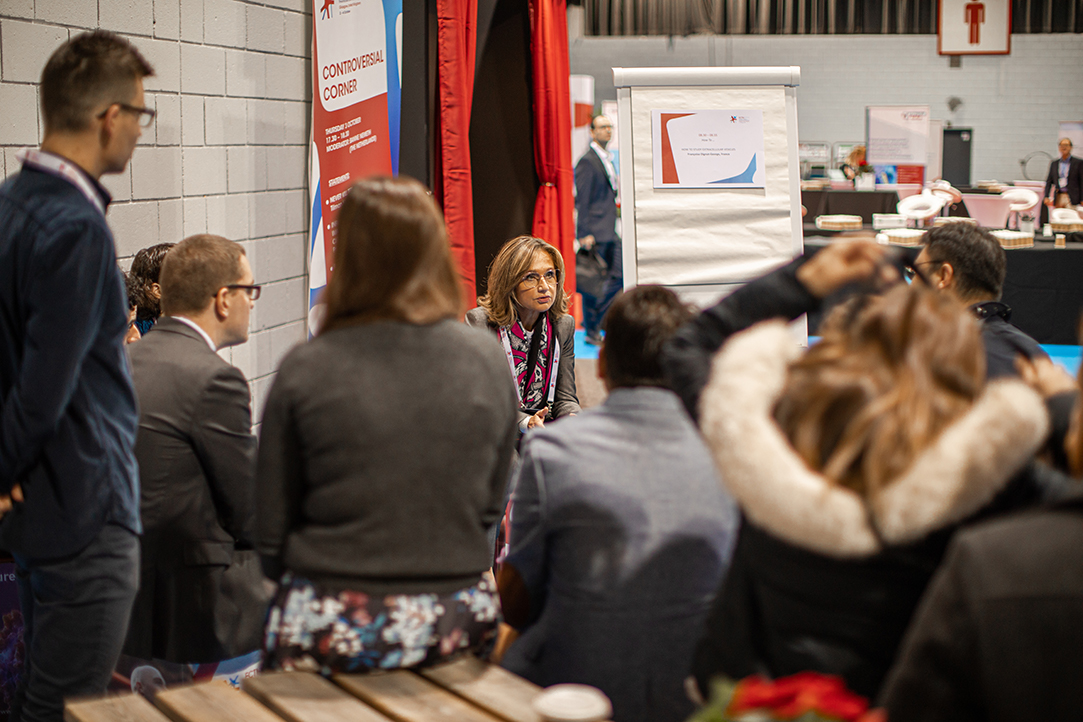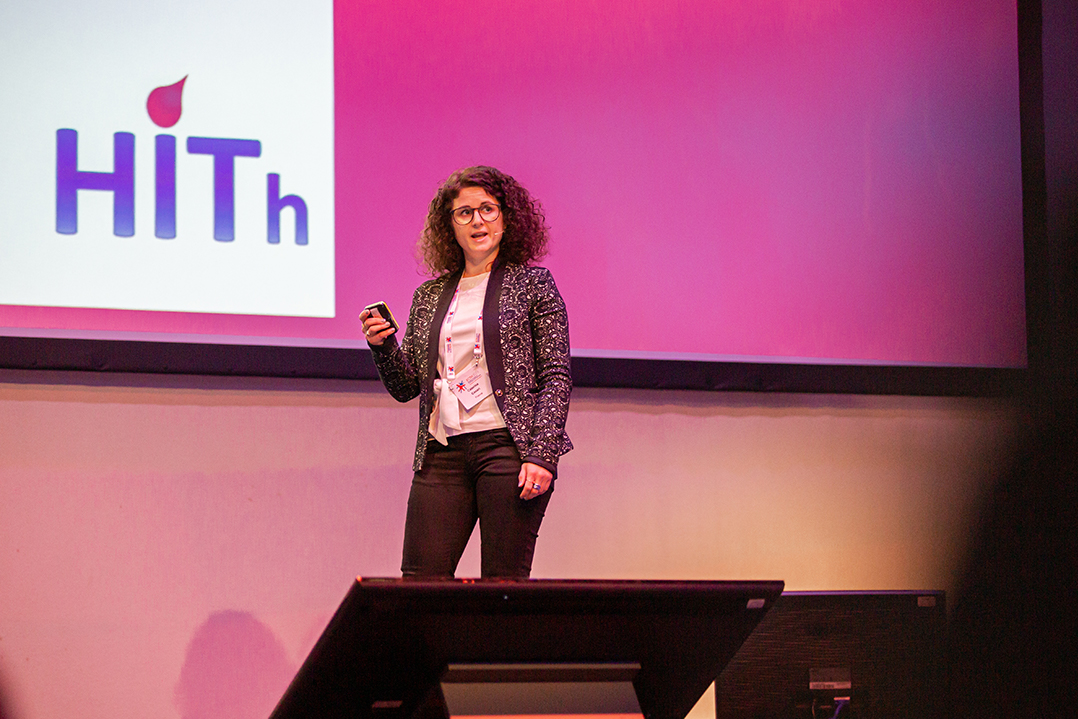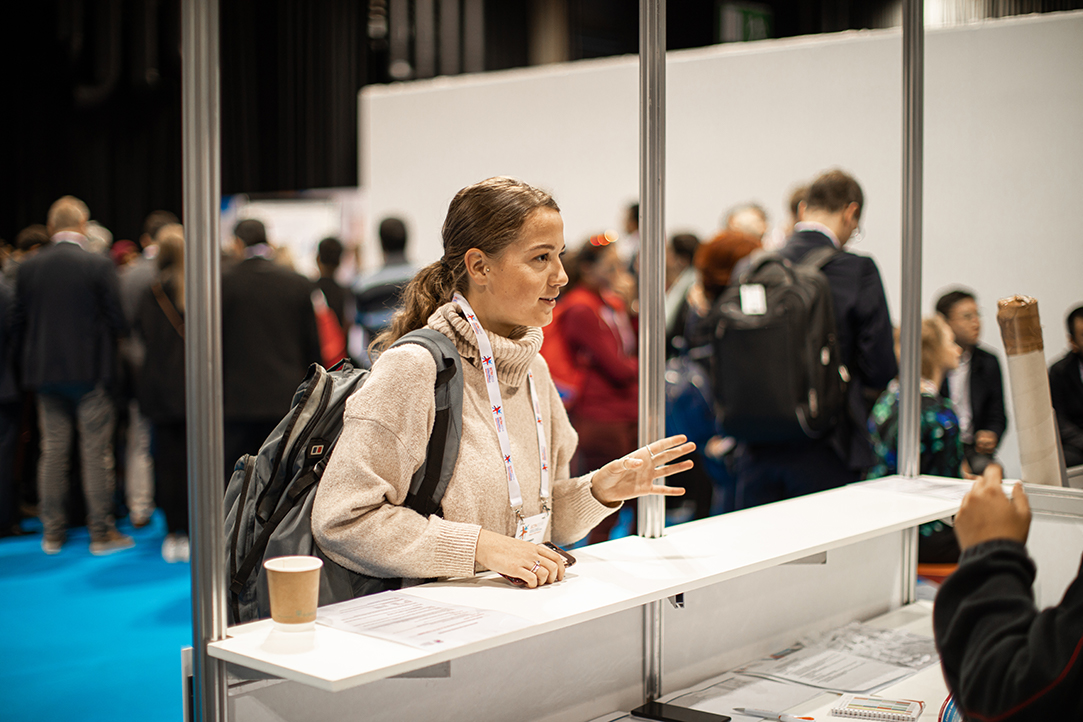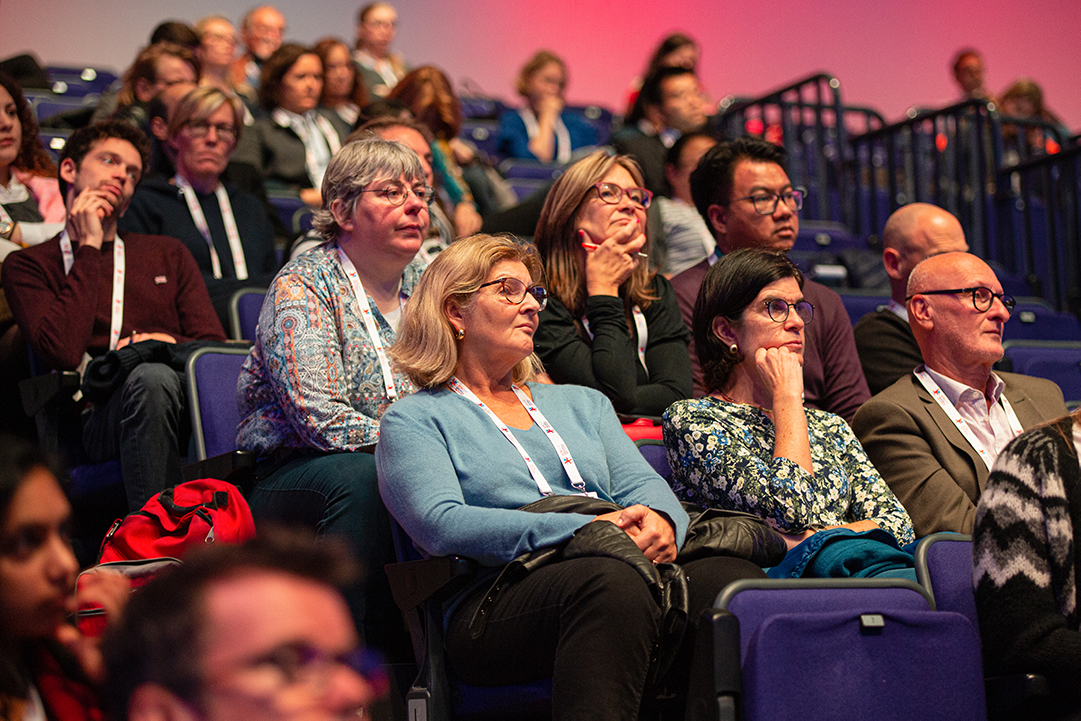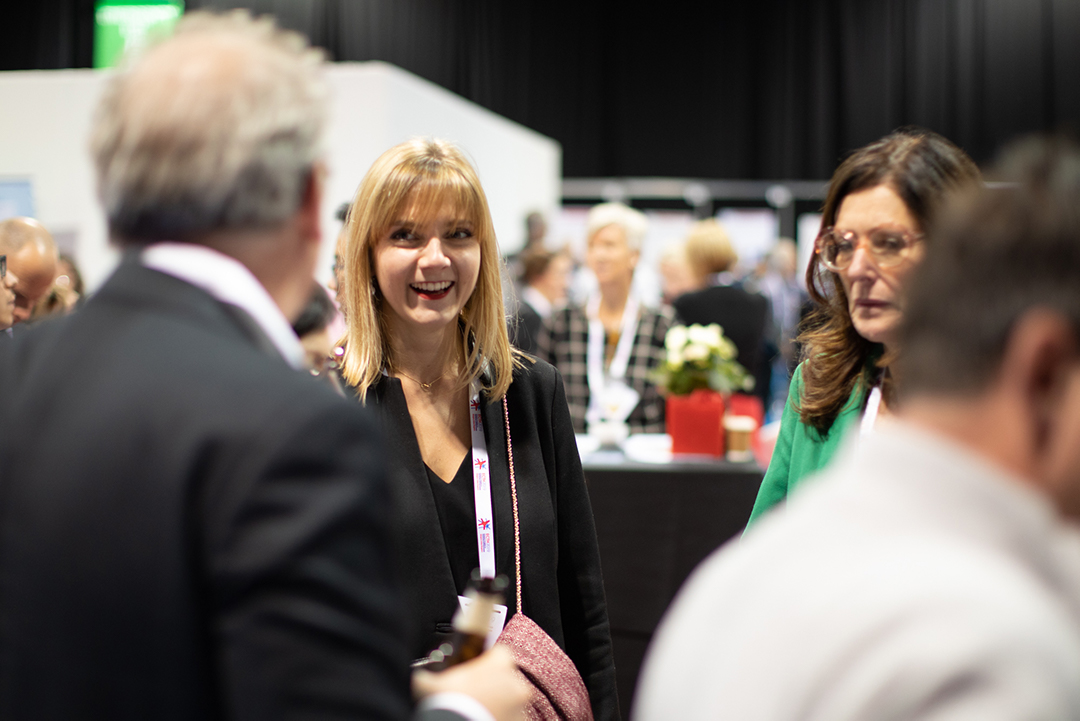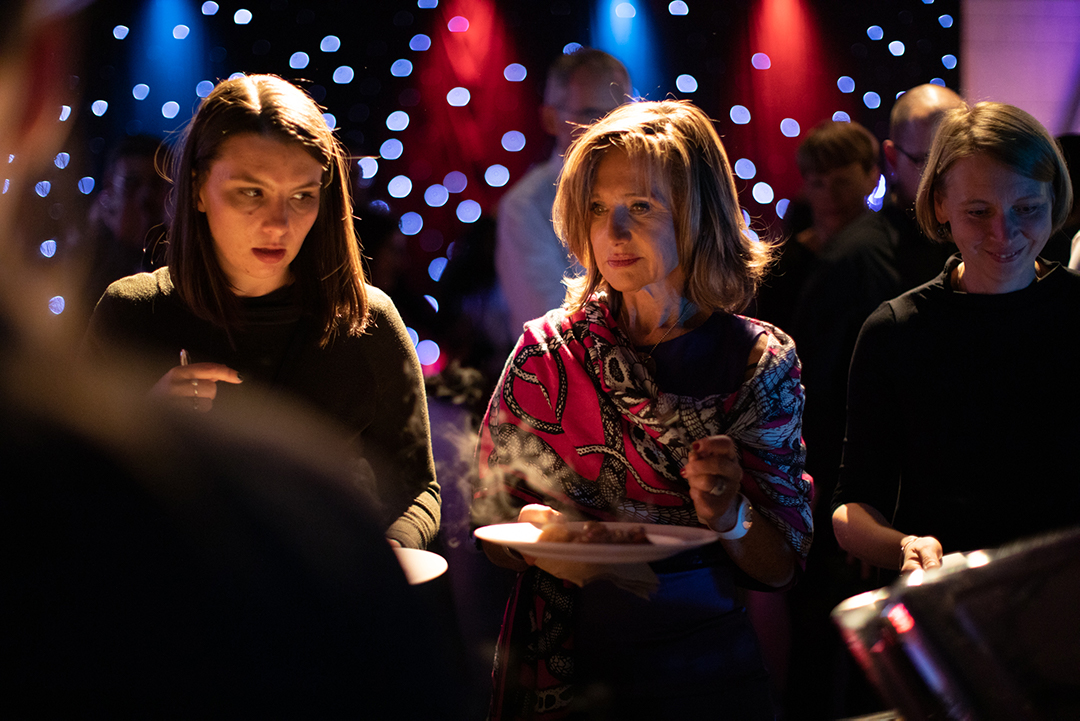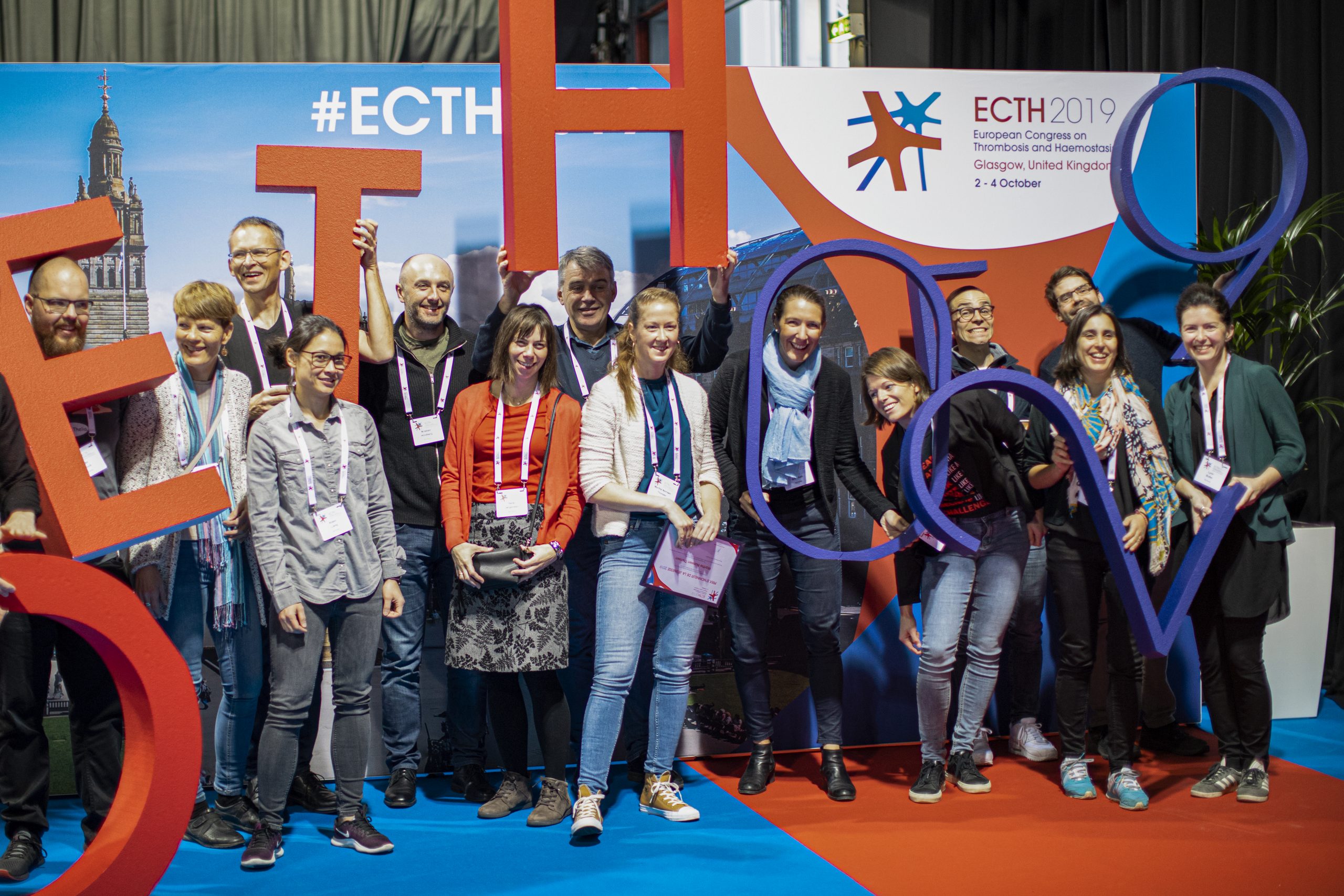
Welcome to ECTH 2019
It is a great pleasure to welcome you to Glasgow, Scotland’s most accessible city. It is the perfect location to bring together researchers and healthcare professionals from across Europe in the spirit of collaboration, discussion and the translation of science.
This third European Congress on Thrombosis and Haemostasis will be an important event for the advancement of Thrombosis and Haemostasis in Europe, and ECTH 2019 will pioneer in the way science will be presented and communicated.
In addition to selected abstract presentations, state of the art lectures and plenaries, we will have guided ‘TEDx-style’ science showcases in the “Science, Fast and Furious” sessions. We will have our poster sessions, and thematic host areas where you can meet your colleagues to discuss new ideas and future challenges.
We are certain that you will enjoy your time in Glasgow and we look forward to seeing you around.
The ECTH Board
Programme at a glance –
Wednesday 2 October 2019
09.00
10:00
BSHT PhD/Early Post-doc Session
Platelet Society Session/ Early Post-doc Session
10:00
10:30
Coffee Break & Poster Viewing
10:30
12:15
BSHT Session
The Platelet Society Session
BSH Session
12.15
13.15
Lunch Break
Special Symposium
(not part of main CME programme)
13.15
14.45
Venous Thrombosis: Risk
Oral Communications
Bleeding Disorders and Therapy
Oral Communications
Basic Clotting
Oral Communications
Platelets 1
Oral Communications
14.45
15.00
Coffee Break & Poster Viewing
15.00
16.00
Plenary Lecture
A History of Scottish Medicine
Gordon Lowe, United Kingdom
16.00
16.30
Coffee Break & Poster Viewing
16.30
17.30
Science, Fast and Furious
17.30
18.00
Opening Ceremony
18.00
19.00
Welcome Reception
08.30
08.55
How to . . .
Meet the Expert
08.55
09.20
How to . . .
Meet the Expert
09.20
09.30
Short Break
09.30
10.30
Focus Symposium
Thrombosis and Cancer
Focus Symposium
Treatment of Haemophilia
Focus Symposium
Translational Science
Focus Symposium
Anticoagulant Proteins
10.30
11.00
Coffee Break & Poster Viewing
11.00
11.30
State of the Art
A dual role for platelets in fibrinolysis
Nicola Mutch, United Kingdom
State of the Art
Vascular calcification
Leon Schurgers, The Netherlands
11.30
12.00
State of the Art
Management in Von Willebrand disease
Jeroen Eikenboom, The Netherlands
State of the Art
Coagulation factors crosstalk with endothelium
Pablo Garcia de Frutos, Spain
12.00
12.15
Short Break
12.15
13.15
Special Symposium (not part of main CME programme)
13.15
13.30
Short Break
13.30
14.30
Plenary Lecture
New development in Von Willebrand research
Cécile Denis, France
14.30
15.15
Contact Activation
Oral Communications
Von Willebrand Disease
Oral Communications
Vessel Wall 1
Oral Communications
Platelets 2
Oral Communications
15.15
15.45
Coffee Break & Poster Viewing
15.45
17.00
Invited Integrated Symposium
Bleeding
Invited Integrated Symposium
Clot Structure
Invited Integrated Symposium
Factor XIa
Invited Integrated Symposium
OMICS
17.00
18.30
Poster Reception
17.30
18.30
Poster Sessions
Controversial Corner
19.00
00.00
Congress Dinner
Venue: Glasgow Science Centre (offsite)
09.00
10.00
Venous Thrombosis
Consequences
Oral Communications
Bleeding in the Clinic
Oral Communications
Clot Structure
Oral Communications
Vessel Wall 2
Oral Communications
10.00
10.30
Coffee Break & Poster Viewing
10.30
11.00
State of the Art
Overview on HUS: novel treatment
Miriam Galbusera, Italy
State of the Art
Phosphatases in platelet signalling
Yotis Senis, United Kingdom
11.00
11.30
State of the Art
Nets
Kimberly Martinod, Belgium
State of the Art
Bleeding
Samantha Gouw. The Netherlands
11.30
12.30
Science, Fast and Furious
12.30
13.30
Lunch Break & Poster Viewing
Sport Activity
13.30
14.30
Plenary Lecture
Current status of inhibitors of factor XI
Jeffrey Weitz, Canada
14.30
14.45
Closing and ECTH2021

Speakers 2019
Invited speakers
Cécile Denis
Cécile Denis is director of research at INSERM (Institut National de la Santé et de la Recherche Médicale) in Kremlin-Bicêtre Hospital next to Paris, France. After completing her PhD in 1993 at the University of Paris, she spent the following seven years working at Harvard Medical School in Boston. Back in France, she obtained a permanent position at INSERM and developed her own research team.
Since 2010, she is the director of Inserm Unit 1176, an Inserm laboratory covering a large aspect of hemostasis research from platelet function to coagulation proteins, and involved in the development of new therapeutics for bleeding disorders. Her long-standing personal interests have been on von Willebrand factor, von Willebrand disease and development of animal models.
She received prizes from the French Academy of Sciences in 2006 and from the International Society of Thrombosis and Haemostasis in 2017. She has also received the French Légion d’Honneur in 2012. She has published more than 125 papers in the field of Thrombosis and Haemostasis and is inventor on 11 related patents.
Gallia Levy
Dr Levy’s passion for coagulation started with her PhD dissertation research in the laboratory of Dr David Ginsburg at the University of Michigan. She studied the genetic basis for the variability of VWD and cloned the ADAMTS13 gene that is the genetic basis for thrombotic thrombocytopenic purpura (TTP). Dr. Levy completed her medical and doctoral training at the University of Michigan, followed by internal medicine at Stanford University and hematology fellowship at the University of California, San Francisco (UCSF). She is board-certified in hematology and previously served as adjunct clinical faculty at UCSF on the hematology consultation service.
Dr Levy first joined Genentech in 2009, where she worked in both early and late development on several products. She later moved to Portola Pharmaceuticals, where she led the clinical development program for andexanet alfa, a FX inhibitor antidote. Dr Levy returned to Roche/Genentech in 2014 to lead the clinical development program for emicizumab (Hemlibra). Under her leadership, Hemlibra has gone from proof of concept to approval in adults and children with hemophilia A of all ages with and without FVIII inhibitors in less than 5 years. Dr. Levy is now a Group Medical Director at Genentech, leading the non-malignant hematology late stage clinical development group.
Jeffrey Weitz
Dr. Weitz is Professor of Medicine and Biochemistry and Biomedical Sciences at McMaster University and Executive Director of the Thrombosis and Atherosclerosis Research Institute. Board Certified in Internal Medicine, Hematology and Medical Oncology, Dr. Weitz focuses his clinical practice on patients with thrombotic disorders. His research spans the spectrum from basic studies in the biochemistry of blood coagulation and fibrinolysis to animal models of thrombosis and on to clinical trials of antithrombotic therapy. The breadth of his work is highlighted by his over 530 publications in journals as diverse as the Journal of Clinical Investigation, Journal of Biological Chemistry, Biochemistry, Circulation, Blood, Annals of Internal Medicine, New England Journal of Medicine and Lancet, and 65 book chapters. The recipient of numerous awards, Dr. Weitz is a Fellow of the American Heart Association, the Royal Society of Canada and the Canadian Academy of Health Sciences.
Kimberly Martinod
Kimberly Martinod is an assistant professor in the Department of Cardiovascular Sciences, Faculty of Medicine, at KU Leuven in Belgium. She performed her doctoral studies in Denisa Wagner’s lab and received her PhD degree in Immunology from Harvard Medical School for her thesis titled “Neutrophil extracellular traps in thrombosis and inflammation.” As a Transfusion Biology Research Fellow at Boston Children’s Hospital, she investigated the role of peptidylarginine deiminase 4 (PAD4) and NETs in fibrotic tissue remodeling during aging. In 2016, she joined Simon De Meyer’s group in the Laboratory for Thrombosis Research at the KU Leuven Kulak Kortrijk campus, where as a Marie Skłodowska-Curie Postdoctoral Fellow she has studied the interaction between the blood protein von Willebrand factor and neutrophils in their activation leading to NETosis.
Her (growing) research group, located at the Center for Molecular and Vascular Biology in Leuven, focuses on the interplay between thrombosis and inflammation in cardiac disease, specifically in the development of heart failure. She is, since 2018, a co-chair of the Scientific Subcommittee on Vascular Biology of the International Society on Thrombosis and Haemostasis.
Miriam Galbusera
Miriam Galbusera received her Biol.Sci.D. at the University of Milan (Italy). She was working from 1985 at the Mario Negri Institute for Pharmacological Research. After a fellowship in the Laboratory of Thrombosis and Hemostasis at Scripps Clinic and Research Foundation (La Jolla, CA) she returned at the Mario Negri Institute were she is currently head of the Unit of Platelet-Endotelial Cell Interaction.
As biochemist, Dr Galbusera was involved in studies aimed at clarify the molecular mechanisms that favor thrombosis in hemolytic uremic syndrome and thrombotic thrombocytopenic purpura. These studies provided evidence that complement activation at the endothelial level has a key role in triggering platelet activation and thrombus formation. She developed the test with microvascular endothelial cells used for the determination of complement activation. She has studied the role of complement in a model of STEC-HUS and provided evidence that Shigatoxin induced alternative complement activation leading to microvascular thrombosis in diarrhea-associated HUS.
Her fields of interest include VWF and ADAMTS13 biochemistry, complement dysregulation, platelet-endothelial cell interaction and platelet pathophysiology in uremia.
In 2010 her laboratory was accredited by Regione Lombardia and the Italian National Health Service as a reference centre for biochemical and genetic diagnostic tests in patients with aHUS and TTP and in 2015 the accreditation was extended to C3G/MPGN, steroid resistant nephrotic syndrome and PKD. On July 2017 the laboratory received the ISO 9001/2008 certification for biochemical and genetic analysis in patients with rare diseases.
Her group also discovered the genetic cause of very rare renal disease, the glomerulopathy with fibronectin deposits and a new genetic form of childhood onset familial FSGS associated with mutation in the myosin 1E gene. Using next generation sequencing technology her group has identified a new genetic form of recessive steroid resistant nephrotic syndrome (SRNS) associated with mutations in the myosin 1 E gene. Dr. Noris has been invited to hold lectures at a number of National and International congresses and is author and co-author of more than 200 scientific articles, reviews and monographs.
Samantha Gouw
Samantha C. Gouw, MD, PhD received her PhD doctorate on the etiology of inhibitor development in children with severe hemophilia A (Utrecht University in 2011). In collaboration with a team of international colleagues, she published several papers in Blood and a paper in New England Journal of Medicine on genetic and non-genetic risk factors of inhibitor development. She trained as a pediatric hematologist and clinical epidemiologist. She currently works at the Department of Pediatric Hematology at the Amsterdam University Medical Center and as the coordinating researcher of a nationwide study in hemophilia patients at the Department of Clinical Epidemiology at Leiden University Medical center, The Netherlands. Her current research focuses on inhibitor development in hemophilia and the quality of hemophilia care.
Yotis Senis
Dr Yotis Senis was awarded a BScH in Life Sciences in 1993, an MSc in 1996 and a PhD in 2002 in Pathology, Queen’s University, Canada. His MSc was under the supervision of Professor Alan Giles on the clearance and biosynthesis of VWF during disseminated intravascular coagulation, and his PhD was under the supervision of Professor Peter Greer on the regulation of haematopoiesis by the tyrosine kinases Fps and Fer. In 2002 he joined the laboratory of Professor Steve Watson in Pharmacology, University of Oxford, UK as a postdoctoral researcher, characterising novel receptors and signalling pathways regulating platelet function. In 2003 he was appointed to a 5 year research position in the Birmingham Platelet Group, Physiology, University of Birmingham, UK, which allowed him to start developing his research interests on platelet tyrosine phosphatases. He was awarded a BHF Intermediate Basic Science Research Fellowship in 2009 and a Senior Fellowship in 2013 investigating the inhibitory receptor G6b-B and tyrosine phosphatases Shp1 and Shp2. He was promoted to Chair in Cellular Haemostasis in the College of Medical and Dental Sciences, University of Birmingham in 2013. In 2019 he was appointed Director of Research at Etablissement Français du Sang / Inserm UMR S1255 Strasbourg, France under the Directorship of Dr Christian Gachet. In his research, Dr Senis takes a multidisciplinary approach investigating how tyrosine phosphatases work in conjunction with tyrosine kinases to regulate platelet activation, with the overall objective of identifying novel anti-thrombotic drug targets.
Dennis Mook-Kanamori
Dr. Dennis Mook-Kanamori is a clinical epidemiologist and a family practice physician based at the Leiden University Medical Center. He received his medical degree from the University of Leiden (2005), his PhD from Erasmus University Rotterdam (2010) and his Dutch board certification for family practice in 2014. His main field of research is multi-omics approaches of complex diseases with a focus on cardiometabolic diseases. He has published over 100 articles in the field of genomic, metabolomic, proteomic, glycomic and methylation biomarkers in relation to obesity, type 2 diabetes and cardiovascular diseases. Since 2018, he is also a part-time clinical research consultant for Metabolon, Inc., a provider of non-targeted metabolomics measurements. Besides his work as a clinical research, he works two days per week as a general practitioner in The Hague. In the coming years, he aims to investigate the prospect of precision medicine in primary care
Gordon Lowe
Gordon Lowe graduated MB,ChB with honours and gold medal from the University of St Andrews in 1972. He trained in general medicine with an interest in haemostasis, thrombosis and vascular diseases in the University Department of Medicine, Glasgow Royal Infirmary from 1974; and graduated MD (Dundee) with commendation in 1984. He was appointed Senior Lecturer, University of Glasgow and Consultant Physician in 1985; and from 1987 was Co-Director of the West of Scotland Haemophilia and Thrombosis Centre, and Director of the University’s Haemostasis and Thrombosis Research Laboratory, with a focus on epidemiology and clinical trials. In 1993 he was appointed Professor of Vascular Medicine. He was President, BSHT 1990-1; Co-Chair of the ISTH Subcommittee on Predictive and Diagnostic Variables in Thrombotic Diseases; Vice-President, ISTH 2001-3; and Chair, Scottish Intercollegiate Guidelines Network (SIGN) 2002-7. He graduated DSc (Glasgow) in 2007; and received an ISTH Investigator Recognition Award in 2009. Retiring that year, he developed his interests in medical history, music and railways.
Jeroen Eikenboom
Jeroen Eikenboom received his MD degree in 1988 at the Erasmus University Rotterdam, the Netherlands. He obtained his PhD at the Leiden University in 1994; the subject of his thesis was “The inheritance of von Willebrand disease”. He was trained in internal medicine at the Leiden University Medical Center and registered as internist in 2001. Since then he sub-specialised in hematology and vascular medicine. He was appointed full professor of Internal Medicine/Hemostasis and Thrombosis in 2011. His clinical work is focused on bleeding disorders, thrombophilia and vascular medicine. His research is focused on the molecular genetics of von Willebrand disease, genotype-phenotype associations in von Willebrand disease, and the biochemical and cell biological aspects of synthesis, storage, secretion and clearance of von Willebrand factor. He has been (co)chairman of the Scientific Subcommittee on von Willebrand factor of the Scientific and Standardisation Committee (SSC) of the International Society on Thrombosis and Haemostasis (ISTH) from 1999-2013. He is member of the editorial board of the Journal of Thrombosis and Haemostasis and the British Journal of Haematology and he is associate editor of HemaSphere. He is board member of the Dutch Society of Internists Vascular Medicine.
Leon Schurgers
Leon Schurgers is professor of vascular calcification and vice chair of the department of biochemistry, which is part of the Cardiovascular Research Institute CARIM, the largest research institute of the University of Maastricht. His work includes molecular biology, biochemistry, animal and human nutrition, pharmacology, and clinical studies in the fields of vascular disease. He is leading the scientific part on vitamin K-research, vascular smooth muscle cells and iPSCs and supervising technical engineers, post docs and PhD students.
His project line tries to elucidate the molecular mechanisms of vitamin K-dependent proteins (VKDP) by which (vascular) calcification is initiated and propagated: key cellular events include phenotypic switching of vascular smooth muscle cells (VSMC) and the formation of extracellular vesicles and apoptotic bodies contributing to the initiation and progression of calcification. The regulation of VKDP biosynthesis, its sites of action and its putative relationship with apoptosis is insufficient to understand the pathogenesis of ectopic calcification at a level that allows the development of novel diagnostic tools and therapeutic strategies for VKDP.
Importantly, these findings will help to understand the paradoxal observation that patients with low vitamin K-status during oral anticoagulant treatment develop massive ectopic calcification and our results might provide new insights in prognostic and preventive measures.
Nicola Mutch
Dr Nicola Mutch received a BSc Hons in Molecular Biology from the University of Aberdeen, UK. Her PhD was carried out within the laboratory of Prof Nuala Booth at the University of Aberdeen studying cross-talk between the fibrinolytic and coagulation systems. After obtaining her PhD she took up a post-doctoral position with Prof Jim Morrissey at the University of Illinois at Urbana-Champaign, Illinois, USA. During this time the laboratory uncovered the role of platelet polyphosphate in regulation of coagulation and fibrinolysis. Nicola returned to the UK to take up a tenure track position as an Independent Fellowship in Cardiovascular Biology at the University of Leeds. Following this appointment she was awarded personal Intermediate Fellowship from the British Heart Foundation and moved back to Aberdeen to pursue her research. Her research takes a global approach to study the cross-talk between haemostatic systems, with the goal of understanding the normal biological processes that regulate these complexes pathways and perturbations during disease. Her recent interests include exploring the novel role of platelets and other cells in regulation of fibrinolysis and studying the dynamic process of thrombus formation and dissolution under flow with a view to uncovering new targets to tackle bleeding and thrombotic complications.
She is currently a Reader at the University of Aberdeen, Secretary of the British Society of Haemostasis & Thrombosis (BSHT), President of the International Society of Fibrinolysis and Proteolysis (ISFP) and Executive Chair of the Scientific and Standardisation Subcommittees of the International Society of Thrombosis and Haemostasis (ISTH).
Stefan Heitmeier
Principal Scientist at the Cardiovascular Research Centre, Bayer AG, Wuppertal, Germany
Stefan Heitmeier has worked for 20 years as a research scientist at Bayer AG, mostly in Wuppertal, Germany.
Dr. Heitmeier has a long-standing interest in the identification of targets for new antithrombotic approaches and drug candidate optimization and profiling and has presented his work at cardiology and thrombosis congresses.
Dr. Heitmeier graduated with a degree in Pharmacy from the Institute for Pharmaceutical Sciences, University of Muenster in Germany and gained his PhD degree in the field of bioanalysis of metabolic patterns of drugs in body fluids. He started his work at Bayer in the research centre in West Haven, Connecticut, in target discovery with novel receptor deorphaning strategies. In 2001, Dr. Heitmeier joined the lead structure identification group to develop assays for ultra-High Throughput Screening. From 2005 on, he has led a laboratory group conducting all kinds of in vitro and in vivo studies in thrombosis and vascular biology. In addition, Dr. Heitmeier has directed several multifunctional projects focusing on the identification, optimization and characterization of antithrombotic drugs, supports programs for novel antithrombotics in clinical development, and is involved in the ongoing characterization of the in vitro and in vivo pharmacological profile of the launched drug rivaroxaban.
Françoise Dignat-George
Françoise Dignat-George is the head of the Hematology and vascular department of Conception Hospital in Marseille. From 2004 to 2018 , she has been the director of an INSERM unit of about 50 persons entirely dedicated to vascular biology and since 2018 , she is the deputy director of the Cardiovascular and Nutrition Center ( C2VN) of Aix Marseille University, merging about 190 persons. Since 1985, she has developed an expertise on Vascular Biology, Hemostasis and thrombosis , with a great interest in Patient oriented/translational applications. Her scientific activities in the field are illustrated by more than 400 publications and 12 patents, related on the mechanisms of endothelial lesion and regeneration, the role of microvesicles in vascular homeostasis and the translation of these knowledge to the development of innovative biomarkers and new targets to improve early prevention, diagnostic and therapy of vascular disorders.
Together with Jean Marie Freyssinet, she has set up the ISTH Scientific Subcommittee on Vascular Biology that she served until 2015. She has been awarded the French “Légion d’Honneur” as well as a scientific distinction such as John Ugelstat Award, The Foundation pour la Recherche Medicale Award and le Grand Prix de l’Académie de Pharmacie.
Jan Voorberg
Within my research-group Cellular Hemostasis at Sanquin in Amsterdam we aim to integrate biochemical research on blood coagulation factors with both molecular and cellular immunological approaches. Over the last years we have focused on the interaction of FVIII with antigen presenting cells. My group identified a exposed loop in the C1 domain that is crucially involved in binding to antigen presenting cells. In follow-experiments we showed that modification of this loop reduces the immunogenicity of FVIII in murine hemophilia A. In collaborative study with Dr. Kate Pratt we have clarified a mechanism that explains the onset of inhibitor development in a subset of patients with mild hemophilia A. We have also established a novel and innovative peptide presentation assay that has allowed for the identification of FVIII and ADAMTS13 derived peptides that are presented on MHC class II. In my presentation I will discuss how this newly developed assay can be used to assess the potential imunogenicity of existing and novel biotherapeutics.
Josefin Ahnström
Dr Josefin Ahnström is a British Heart Foundation Research Fellow in the Centre for Haematology at Imperial College London. She has worked there on haemostasis and thrombosis since 2009, following her PhD at Lund University on apolipoprotein M in Björn Dahlbäck’s laboratory. Since 2017 she has been a Committee Member of the British Society for Haemostasis and Thrombosis.
Her current research interests include structural and functional studies of coagulation proteins, as well as regulation of proteoglycans in the extracellular matrix. Her major focus has been determining the molecular mechanisms involved in the anticoagulant pathways. She uses biochemical and kinetic approaches to study formation of various pro- and anticoagulant protein complexes. A recent research interest has been the cofactor roles of protein S and factor V in the TFPI and APC anticoagulant pathways.
Manuel Monreal
Manuel Monreal is Full Professor of Vascular Medicine at the Faculty of Medicine, Universidad Autónoma in Barcelona, and has also been Head of Internal Medicine at the Hospital Universitari Germans Trias i Pujol in Barcelona, Spain, since 1983 to 2018.
Professor Monreal undertook his medical training at the Faculty of Medicine, Universitat Autónoma de Barcelona, obtaining his degree in 1975, and then completed an internship and residency in internal medicine at the Hospital Universitari Vall d’Hebrón in Barcelona.
Professor Monreal has authored or co-authored more than 400 articles and has presented numerous lectures on the study and treatment of venous thromboembolism, peripheral artery disease and related topics. Professor Monreal has published articles in prominent journals including Journal of Thrombosis and Haemostasis, Chest, Circulation, Journal of the American College of Cardiology, The American Journal of Medicine, Archives of Internal Medicine and Thrombosis and Haemostasis. In addition, Professor Monreal is Coordinator of the Registro Informatizado de la Enfermedad Trombo Embólica (RIETE) registry.
Professor Monreal is a founding member and trustee of the Fundación para el Estudio de la Enfermedad Tromboembólica (FUENTE), president of the Spanish Society to study on Vascular Medicine, and member of several important societies, including the International Society on Thrombosis and Haemostasis and the Mediterranean League Against Thromboembolism.
Pablo Garcia De Frutos
Pablo joined the laboratory of Dr. Dahlbäck (Lund University, Sweden) in 1992. Since then, he has studied vitamin K-dependent proteins in plasma (VKDPs) as part of the global mechanisms of response to damage. VKDPs have a unique structure: they bind to phospholipid membranes negatively charged by their N-terminal GLA module, and with receptors or protein substrates from their C-terminal part. The inflammatory processes and haemostasis are interconnected, but the molecular mechanisms of this crosstalk are still being explored. Since 1998, his first line of work as a researcher of the MFR (Medical Research Council of Sweden) was to study the biology of GAS6, a VKDP structurally similar to anticoagulant Protein S, whose function was unknown. He continued this line of research after joining the Spanish Research Council (CSIC) in 2002 as a tenured scientist. The GAS6/ProS-TAM system is an essential component in the response to damage in adult tissues. Recently, they determined the involvement of the GAS6/AXL axis in the fibrotic response of the liver and heart (i.e. heart failure).
Since June 2009 he is the Head of the Department of Cell Death and Proliferation at the Institute of Biomedical Research of Barcelona (IIBB-CSIC). He is also the investigator in charge of the Associated Unit of “Tumoral mechanisms and cancer progression” of the IIBB-CSIC and the IMIM (Barcelona), since September 2018.
Member of the Editorial Board (Section Editor) of “Thrombosis and Haemostasis” (since 2003), and Associate Editor of “Plos One” (since 2014).
Yassene Mohammed
Yassene is an assistant professor at the Center for Proteomics and Metabolomics at Leiden University Medical Center, the Netherlands. He is also head of bioinformatics at the Proteomics Centre of the University of Victoria, Canada, where he is also an adjunct assistant professor at the Division of Medical Science. He received his PhD from the University of Göttingen, Germany. A large portion of Yassene’s recent activities focuses on quantitative targeted proteomics and its clinical applications. He has co-authored multiple works on the methods and applications of precise quantitation of blood plasma proteins using mass spectrometry and heavy labeled surrogate peptide internal standards. He is also active in perusing new approaches for mass spectrometry data analysis, -omics integration, as well as automation of information extraction from such data.
